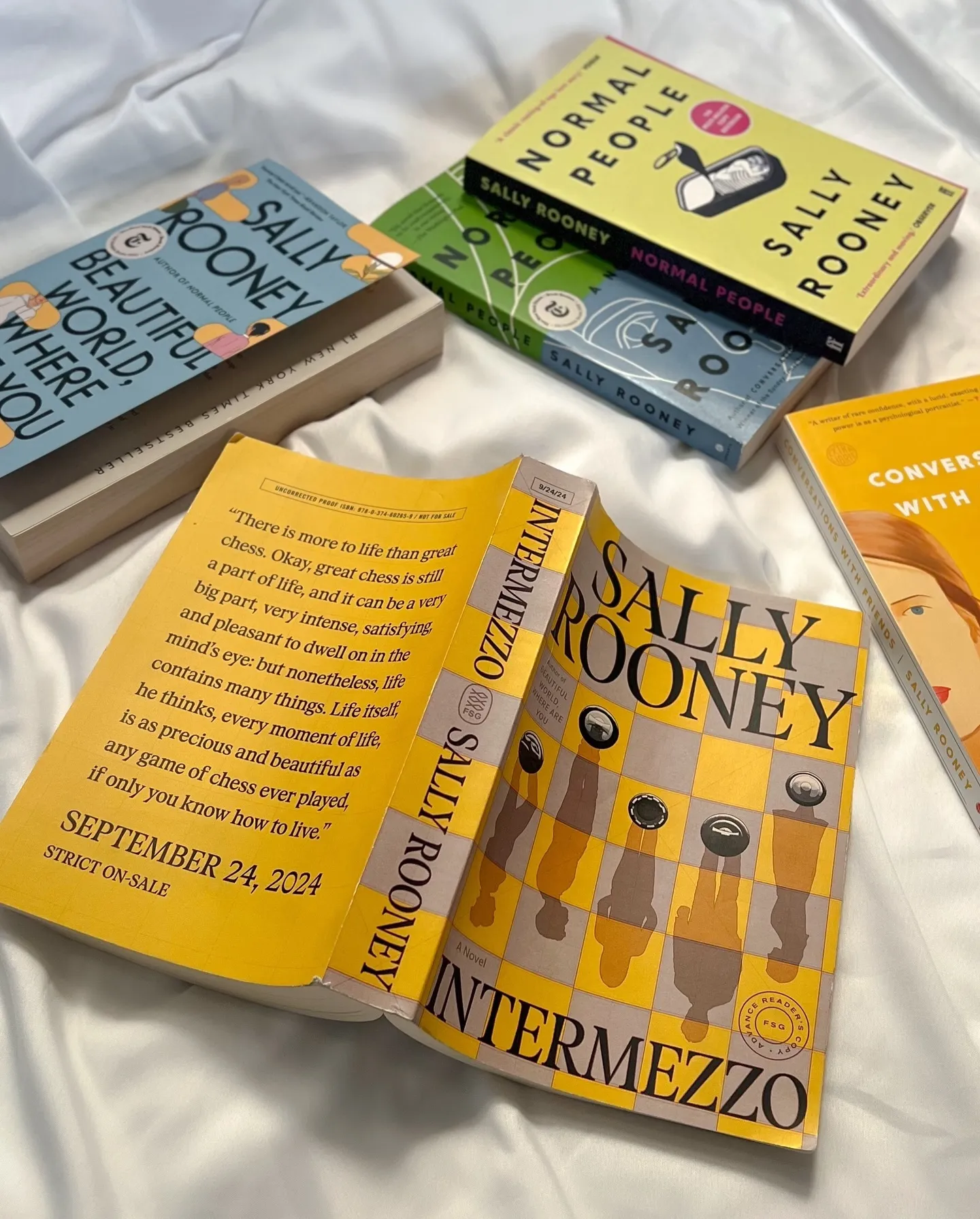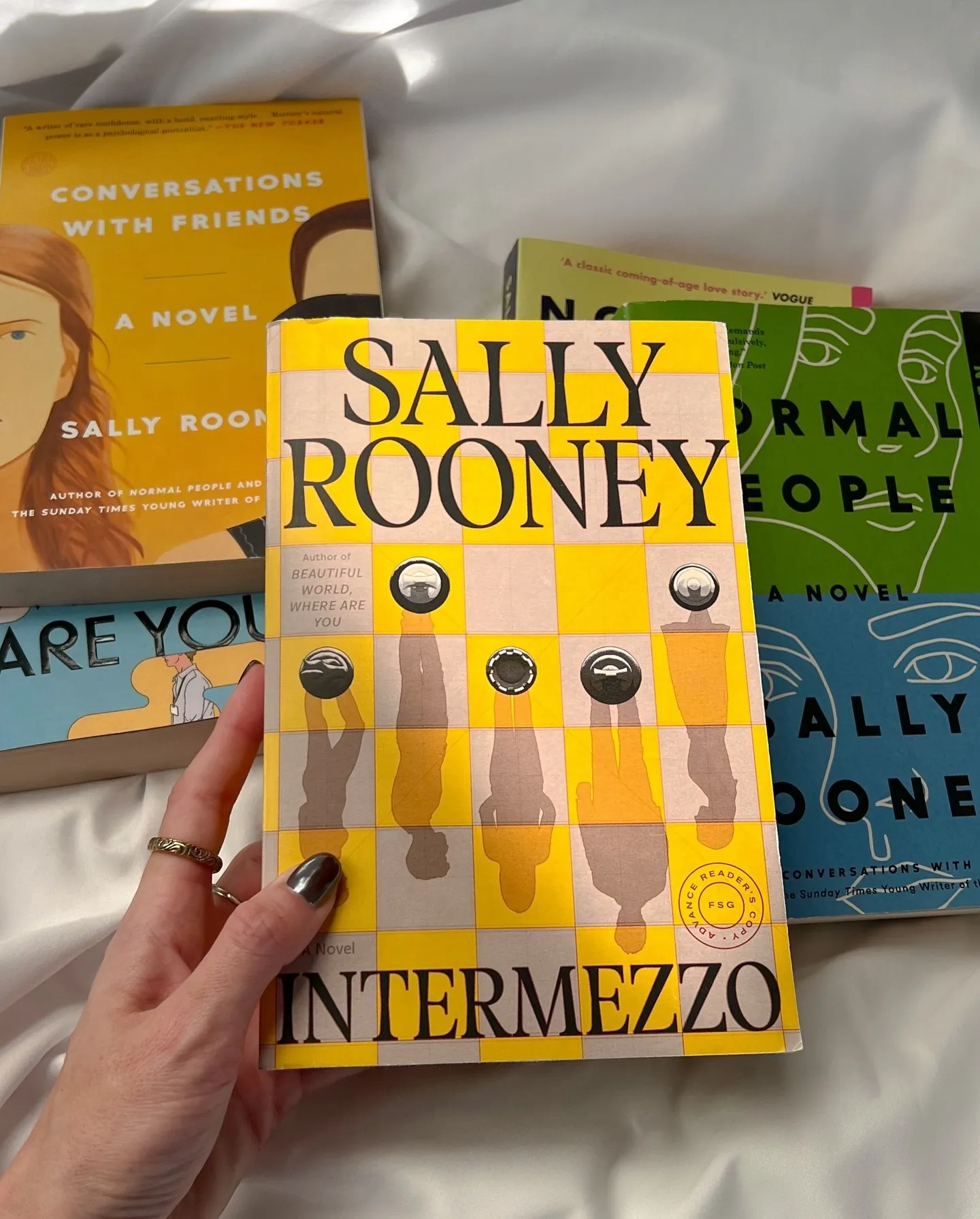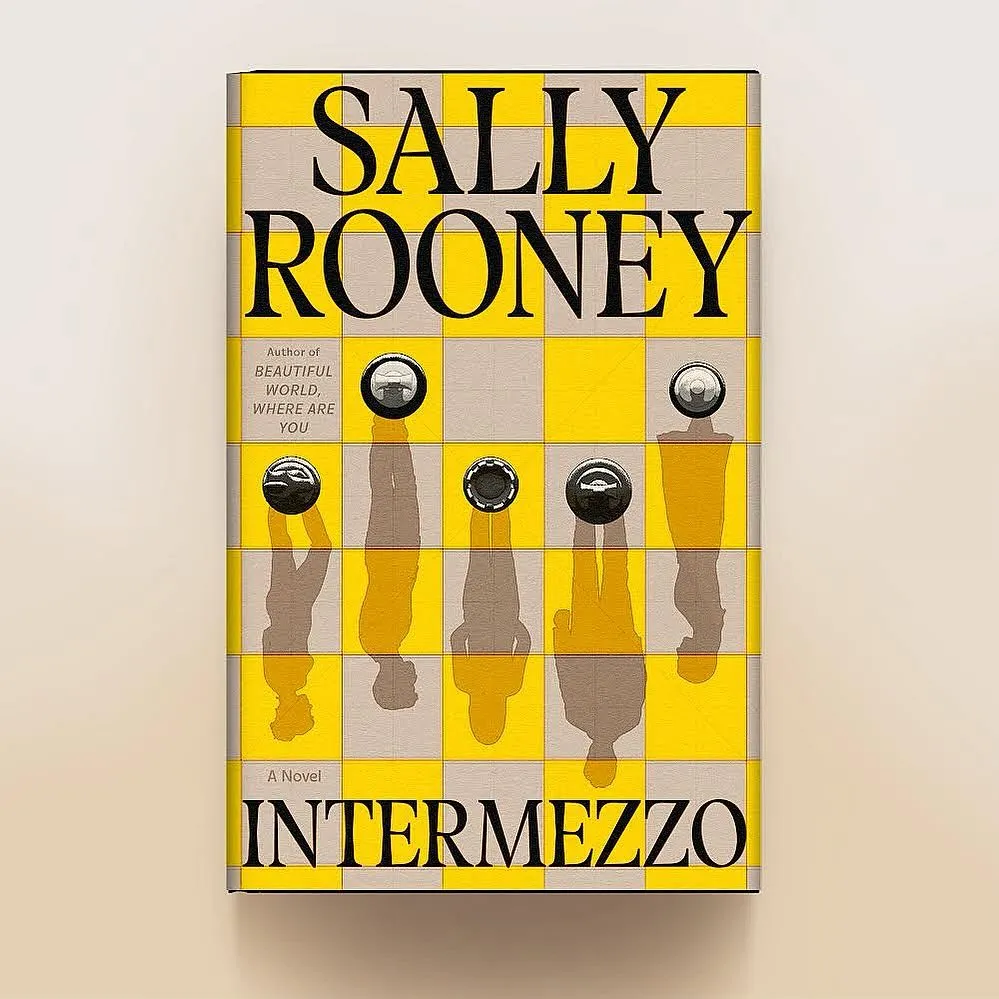This book review of Intermezzo by Sally Rooney unveils a novel that stirred my soul with its delicate unraveling of human bonds. It’s a story that beckons you to pause, feel, and linger in its quiet, aching beauty.
Sally Rooney’s Intermezzo slipped into my hands like a quiet confession, its pages heavy with the weight of grief and love. I’ve long been captivated by Rooney’s ability to peel back the layers of human connection, and this, her fourth novel, feels like a bold step into new territory. It’s not the familiar romance-driven pulse of Normal People or Conversations with Friends. Instead, it’s a raw, introspective family drama that left me both unsettled and deeply moved. I found myself lingering over passages, caught in the messy beauty of two brothers navigating loss, love, and each other.
The story centers on Ivan and Peter Koubek, brothers divided by a decade and a chasm of misunderstanding, grappling with their father’s recent death. Ivan, a socially awkward chess prodigy in his early twenties, and Peter, a polished Dublin lawyer in his thirties, are as different as night and day. Their fractured bond, strained by years of resentment, forms the heart of the novel. Rooney weaves in their romantic entanglements—Ivan with the older, guarded Margaret, and Peter with the free-spirited Naomi and his enduring ex, Sylvia—but the real story lies in the brothers’ tentative steps toward reconciliation. As I turned the pages, I felt like I was eavesdropping on their souls, privy to their quiet regrets and fleeting hopes.
What makes Intermezzo so compelling is Rooney’s fearless exploration of the human condition. She doesn’t shy away from the messy, often contradictory nature of love—familial, romantic, or otherwise. The novel’s title, a nod to a surprising chess move, feels apt: life, like chess, is full of unexpected turns that demand a response. I laughed, I ached, and I found myself rereading passages to savor Rooney’s precise, unadorned prose. This is a book that asks you to sit with discomfort, to feel the weight of grief, and to find beauty in the small, imperfect moments of connection.

The Brothers Koubek: A Study in Contrasts
Ivan Koubek stole my heart from the first page. He’s awkward, overthinking, and painfully self-aware, a young man adrift after his father’s death and the decline of his chess career. His chapters, written in Rooney’s signature close third person, hum with anxious introspection. I felt his every hesitation, especially when he meets Margaret, a divorcée whose quiet strength mirrors his vulnerability. Their connection, described as, “But it is a pleasure, isn’t it, on a crisp September night in Dublin to walk with long free strides along a quiet street,” feels like a rare moment of grace in Ivan’s otherwise turbulent world.
Margaret and Ivan’s relationship, fraught with societal judgment over their age gap, is one of the novel’s strongest threads. Rooney captures the dizzying thrill of their bond with such tenderness that I couldn’t help but root for them. Ivan’s inexperience in love makes his devotion to Margaret all the more poignant. As one critic noted, “Margaret’s love and care for Ivan enables him to move forward and grow as a person,” a sentiment I wholeheartedly share. Their story is a reminder that love, even when unconventional, can be a lifeline.
Peter, on the other hand, is a harder character to love. His chapters, written in a fragmented, almost Joycean stream-of-consciousness, reflect his unraveling mind. He’s a man drowning in grief, alcohol, and self-loathing, juggling relationships with Naomi, a young student, and Sylvia, his ex whose accident shattered their past. The prose, like “Lifting awkwardly her head she swallows once, and again. Blotchy her face he thinks,” mirrors Peter’s fractured state, but it often left me disoriented. I wanted to shake him, to tell him to stop sabotaging himself.
Yet, Peter’s complexity kept me intrigued. His hypocrisy—condemning Ivan’s age-gap relationship while entangled with a much younger Naomi—adds a layer of realism to his character. Rooney doesn’t let him off the hook, and I appreciated that. As a reviewer from The Everygirl put it, “Peter is aptly named if nothing else, since he seems to be suffering from Peter Pan syndrome.” His struggle to reconcile his desires with his sense of morality is painfully human, even if it’s frustrating to witness.
The brothers’ dynamic is where Intermezzo truly shines. Rooney captures the push and pull of sibling love with heartbreaking accuracy. Ivan and Peter are strangers bound by blood, their interactions laced with unspoken resentment. Yet, beneath the surface, there’s a yearning for connection that broke my heart. Their father’s death forces them to confront their shared history, and Rooney handles these moments with such subtlety that I felt privileged to witness them.
Chess serves as a powerful metaphor throughout the novel. Ivan explains that the middle of a chess game, where creativity reigns, is what he loves most. Similarly, Intermezzo is about the messy middle of life, where the rules are unclear, and every move feels consequential. Rooney’s use of this metaphor, as noted by The Guardian, highlights “life’s off-kilter interludes as the main action.” I found myself nodding along, struck by how perfectly it captures the novel’s essence.
Love, Loss, and the Weight of Small Moments
Intermezzo is not a romance in the traditional sense, and that’s what makes it so refreshing. While romantic relationships drive much of the plot, the novel’s heart lies in the bond between Ivan and Peter. This shift, as NPR observed, makes it “less disturbing (and ultimately happier, if never exactly sunny)” than Rooney’s earlier works. I appreciated this departure, though it took me time to adjust to the absence of Rooney’s usual romantic intensity. The focus on familial love felt like a natural evolution for her storytelling.
Rooney’s prose is as precise as ever, each sentence a carefully placed brushstroke. She has a knack for capturing the universal in the specific, like when Ivan reflects, “A person’s outward appearance does not define the boundaries of their internal feelings.” This line stayed with me, a reminder of how deeply Rooney understands her characters’ inner lives. Her choice to forgo quotation marks, a hallmark of her style, enhances the intimacy of the dialogue, though I found it jarring in Peter’s fragmented chapters.
The novel’s pacing is deliberate, almost meditative, which won’t suit every reader. I savored the slow unfolding of the characters’ emotions, but I can see why some might find it sluggish. As one critic noted, “If you prefer fast-moving stories, you might find your attention wavering.” Yet, for me, the quiet moments—Peter watching TV with his mother, Ivan walking his dog—were where the novel’s magic lay. These scenes, small and understated, reveal the characters’ humanity in ways a plot twist never could.
Rooney’s exploration of grief is another highlight. The brothers’ father, a shadowy figure, looms large in their psyche, his absence a catalyst for their self-scrutiny. Both Ivan and Peter grapple with regret, questioning whether they were good sons, good people. This internal conflict, described as “desperate to prove to themselves that they are, at their core, good people,” resonated deeply with me. Rooney captures the discontinuity of grief—its sudden surges and quiet ebbs—with unflinching honesty.
My only qualm is that some characters, particularly Naomi, feel underdeveloped. She’s vibrant but lacks the depth of Margaret or Sylvia, a point echoed by The Independent: “Naomi is not as well fleshed out as the other characters.” I wanted more of her perspective, especially given her complex relationship with Peter. Still, this is a minor flaw in an otherwise masterful novel.

About Sally Rooney – Author of Intermezzo
Sally Rooney, an Irish novelist born in 1991, has become a literary sensation with her incisive portrayals of human relationships. Her debut, Conversations with Friends (2017), and the internationally acclaimed Normal People (2018), adapted into a beloved TV series, established her as a voice of her generation. Known for her minimalist prose and sharp emotional insight, Rooney’s works, including Beautiful World, Where Are You (2021), explore love, class, and identity with unflinching honesty. Intermezzo (2024), her fourth novel, marks a bold shift toward family dynamics, cementing her reputation as a master storyteller.
Intermezzo is Sally Rooney at her most mature, her most ambitious. It’s a book that demands patience but rewards you with moments of profound beauty. I closed it feeling both heavy and hopeful, grateful for Rooney’s ability to make the ordinary feel extraordinary. As The Guardian raved, “Is there a better novelist at work right now?” I’m not sure there is. This is a novel that will linger with me, a tender interlude in my reading life.

